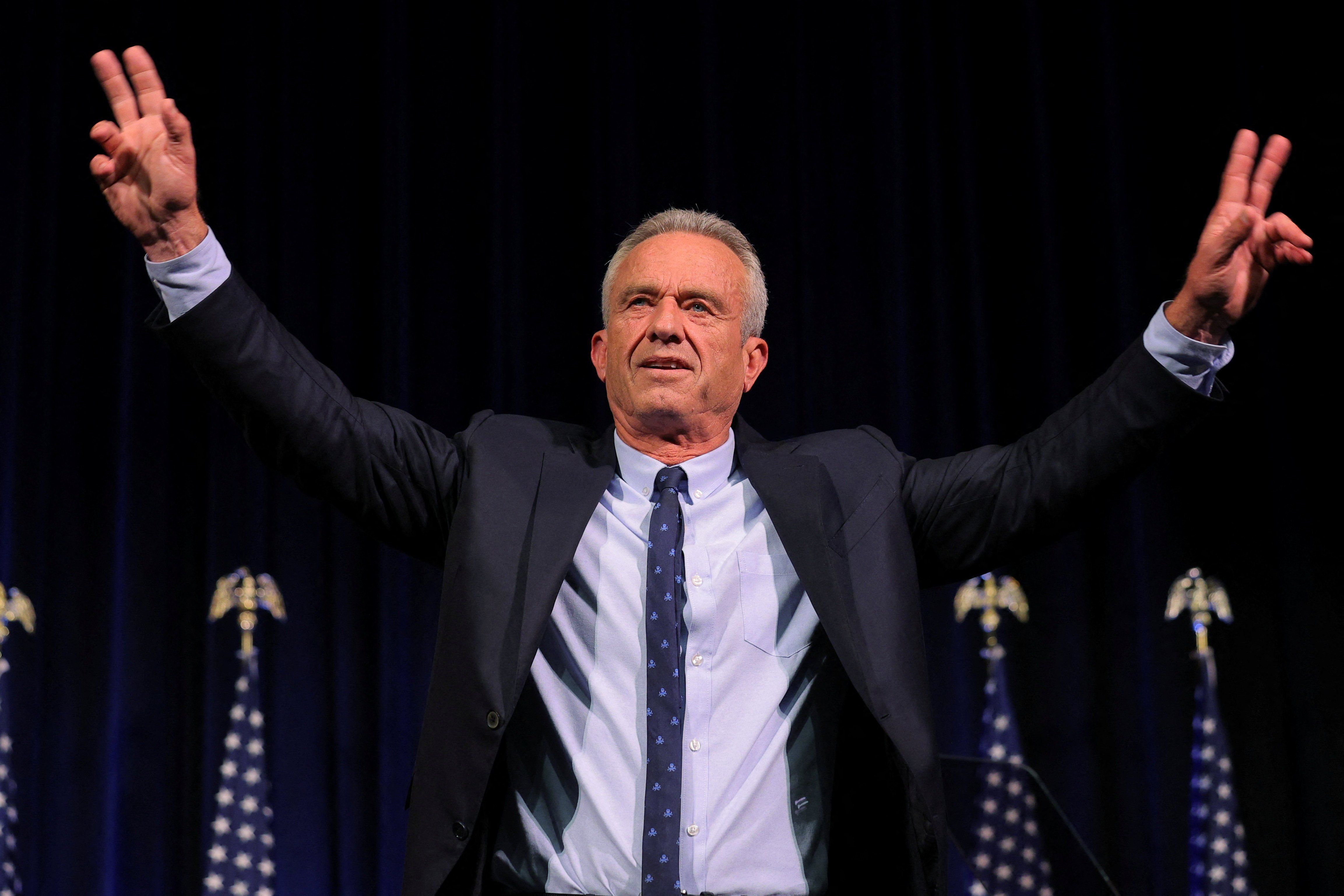July 17, 2023
Robert F. Kennedy Jr. has been raking in donations from GOP donors since he announced he would be challenging Joe Biden to be the 2024 Democratic presidential nominee. He has also been making headlines for propagating conspiracy theories and refusing to toe the party line.
The most recent controversy came last week, when RFK Jr. was accused of spreading a racist and antisemitic conspiracy theory by suggesting that COVID-19 was “ethnically targeted” to spare Ashkenazi Jews and Chinese people. Democrats, including RFK’s sister, Kerry Kennedy, have condemned his remarks, with some calling for him to be disinvited from addressing the House at Thursday’s hearing on censorship.
Who is RFK Jr? The nephew of former President John F. Kennedy and son of JFK’s attorney-general, Bobby Kennedy, RFK Jr has gained notoriety as a prominent vaccine skeptic. His campaign, which has seen poll numbers as high as 20% among Democratic primary voters, aims to limit the influence of corporate money in politics, is against the government’s COVID response and seeks to cut US military aid to Ukraine.
More For You
Think you know what's going on around the world? Here's your chance to prove it.
Most Popular
Donald Trump alongside Nigel Farage amid a television interview at his Trump Turnberry course in South Ayrshire during his visit to the United Kingdom, on May 3, 2023.
PA via Reuters
The US government will reportedly fund MAGA-aligned parties and think tanks in Europe. But with US President Donald Trump’s favorability in Europe so low, do they even want the money?
- YouTube
Zelensky agrees: elections matter #PUPPETREGIME
As more small businesses move sales, payments, and customer relationships online, they unlock new opportunities, but they also become easier targets for cyber-criminals and other threat actors.
© 2025 GZERO Media. All Rights Reserved | A Eurasia Group media company.
